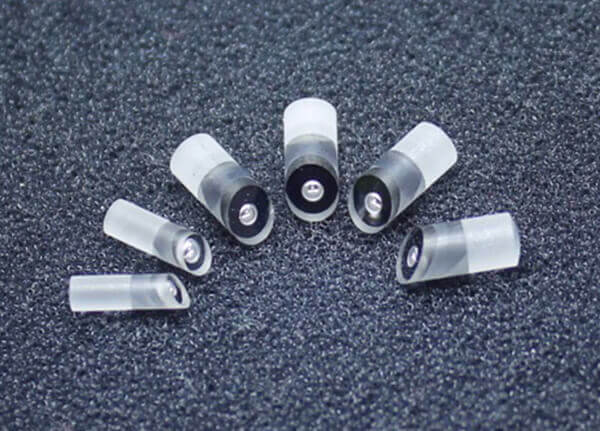歡迎來到匠仁醫療設備有限公司網站!


內窺鏡的歷史經歷了從硬性光學內窺鏡到光導纖維內窺鏡再到電子內窺鏡的過程。隨著半導體和計算機技術的飛速發展,1983年美國人(雅能weIch Allyn公司)首先發明了電子內窺鏡并應用于臨床,被認為是內窺鏡發展史上的第三個里程碑。隨后日本的奧林巴斯、富士潘太克斯等公司也相繼開發了各具特色的電子內鏡。
The history of endoscopes has gone through a process from rigid optical endoscopes to fiber optic endoscopes and then to electronic endoscopes. With the rapid development of semiconductor and computer technology, in 1983, Americans (Ya Neng weIch Allyn company) first invented electronic endoscopes and applied them in clinical practice, which is considered the third milestone in the history of endoscopic development. Subsequently, Japanese companies such as Olympus and Fuji Pantex also developed their own unique electronic endoscopes.
電子內窺鏡不是通過光學鏡頭或光導纖維傳導圖像,而是通過裝在內窺鏡先端被稱為“微型攝像機”的光電耦合元件CCD將光能轉變為電能,再經過圖像處理器“重建”高清晰度的、色彩逼真的圖像顯示在監視器屏幕上。
Electronic endoscopes do not transmit images through optical lenses or optical fibers, but instead convert light energy into electrical energy through the optoelectronic coupling element CCD, which is called a "micro camera" at the tip of the endoscope. After that, the image processor "reconstructs" a high-definition, color realistic image displayed on the monitor screen.
1.基本組成結構
1. Basic composition and structure
電子內窺鏡的主要結構由CCD耦合腔鏡、腔內冷光照明系統、視頻處理系統、和顯示打印系統等部分組成。CCD耦合腔鏡將CCD耦合器件置于腔鏡先端,直接對腔內組織或部位進行直接攝像,經電纜傳輸信號到圖像中心。
The main structure of an electronic endoscope consists of a CCD coupled cavity, an intracavity cold light illumination system, a video processing system, and a display printing system. The CCD coupled cavity mirror places the CCD coupler at the front end of the cavity mirror, directly capturing the tissue or part inside the cavity, and transmitting the signal to the image center through a cable.
2.工作原理
2. Working principle
電子內窺鏡工作原理是冷光源對所檢查或手術部位照明后物鏡將被測物體成像在CCD光敏面上,CCD將光信號轉換成電信號,由電纜傳輸至視頻處理器,經處理還原后顯示在監視器上。CCD光敏面由規律排列的二極管組成,每一個二極管稱為一個像素(picture elemont),像素的多寡決定像質的優劣。目前的制作工藝普遍可達到30~41萬像素。電子內窺鏡靶面和有效尺寸為Fi(外徑)=2mm左右,而且CCD輸出信號的一級放大電路也要包含在2mm的圓柱體積內。電子內窺鏡像質的好壞主要取決于CCD性能,其次還有驅動電路和后處理系統的技術指標,包括分辨率、靈敏度、信躁、光譜響應、暗電流、動態范圍和圖像滯后等。

The working principle of electronic endoscopes is that after a cold light source illuminates the inspected or surgical site, the objective lens will image the measured object on the CCD photosensitive surface. The CCD will convert the light signal into an electrical signal, which is transmitted to the video processor by cable. After processing and restoration, it will be displayed on the monitor. The CCD photosensitive surface is composed of regularly arranged diodes, each of which is called a picture element, and the number of pixels determines the quality of the image. The current production process can generally reach 300000 to 410000 pixels. The target surface and effective size of the electronic endoscope are about Fi (outer diameter)=2mm, and the primary amplification circuit of the CCD output signal should also be included in a cylindrical volume of 2mm. The quality of the electronic endoscope image mainly depends on the CCD performance, followed by the technical indicators of the driving circuit and post-processing system, including resolution, sensitivity, signal-to-noise, spectral response, dark current, dynamic range, and image lag.
CCD的安裝有幾種方式,當設計由CCD代替纖鏡中的光纖傳像束時,形成電子內窺鏡先端部安裝CCD的第一種方法,即CCD的受光面垂直于物鏡光軸方向,是簡單的結構,在這種情況下,必須使用超小型的CCD,這樣可使先端的硬性部較短。
There are several ways to install CCD. When designing to replace the fiber optic image beam in the fiber optic mirror with CCD, the first method to install CCD at the front end of the electronic endoscope is to have the light receiving surface of the CCD perpendicular to the optical axis direction of the objective lens, which is a simple structure. In this case, ultra small CCD must be used to make the hard part of the front end shorter.
第二種是CCD的受光面平行于物鏡光軸,物鏡射來的光通過一個90°的轉向棱鏡照射到CCD的受光面上。此結構的電子內窺鏡的像素數可提高的空間較大,目前逐漸趨向于采用此安裝方法。
The second type is that the light receiving surface of the CCD is parallel to the optical axis of the objective lens, and the light emitted from the objective lens is illuminated onto the light receiving surface of the CCD through a 90 ° turning prism. The pixel count of electronic endoscopes with this structure can be increased significantly, and this installation method is gradually being adopted.
3.視頻處理器及顯示打印系統
3. Video processor and display printing system
視頻處理器的作用是將電子內窺鏡CCD提供的模擬信號轉換為二進制代碼的數字信號,并可以用多種方式記錄和保存圖像,如:用錄像機錄制的方式保存清晰的動態圖像;用35mm照相機在監視器圖像“凍結”的狀態下拍攝保存靜止圖像;用激光光盤記錄動態或靜止的圖像;用軟盤記錄靜止圖像,等等。此外,電子內窺鏡系統還可以與電子計算機相連,將患者的姓名、性別、年齡、主要癥狀、診斷結果等臨床資料與所記錄的各種圖像存入計算機,通過編輯,可以打印檢查報告,也便于患者隨訪和病歷統計研究以及遠程會診和教學等。這種所謂的“圖文工作站”可以與醫院各科室的患者和圖像資料工作站連網,實現醫院的計算機管理。目前,電子內窺鏡圖文系統已廣泛應用于各大醫院,受到醫生和患者的歡迎和好評。
The function of a video processor is to convert the analog signal provided by the electronic endoscope CCD into a binary code digital signal, and can record and save images in various ways, such as using a video recorder to record clear dynamic images; Use a 35mm camera to capture and save still images in the frozen state of the monitor image; Using laser discs to record dynamic or static images; Use a floppy disk to record still images, and so on. In addition, the electronic endoscope system can also be connected to an electronic computer, storing clinical data such as the patient's name, gender, age, main symptoms, diagnostic results, and various recorded images into the computer. Through editing, examination reports can be printed, and it is also convenient for patient follow-up, medical record statistics research, remote consultations, and teaching. This so-called "graphic workstation" can be connected to the patient and image data workstations in various departments of the hospital, achieving computer management of the hospital. At present, the electronic endoscope image and text system has been widely used in major hospitals and has been welcomed and praised by doctors and patients.
4.電子內窺鏡常規使用維護注意事項
4. Precautions for routine use and maintenance of electronic endoscopes
不論電子或纖維內窺鏡,其鏡身外均為合成樹脂保護層,形成內部與外界隔絕的密閉環境。內窺鏡的品牌也較多,以上消化道內窺鏡為例。內窺鏡的內部含有角度鋼絲,活檢通道,導光束,水氣通道,電子鏡有CCD組件及信號傳輸電纜、纖維鏡有視像束等,一旦出現漏氣,人體腔內分泌物、粘液、水等通過泄漏處進入內窺鏡內部,腐蝕其結構。角度鋼絲受腐蝕易斷,角度活動受限,視像束、導光束受腐蝕易變硬、粘連,轉動角度時斷裂或抽絲。先端頭物組鏡頭腐蝕易生霉、霧珠、斑跡,嚴重影響診斷和治療。電子鏡CCD組件受腐蝕,易短路,燒壞CCD,并引發主機故障,維修價格非常昂貴。所以測漏是內窺鏡室醫護人員或工程師每天必做的重要工作。
Regardless of whether it is an electronic or fiber endoscope, the outside of the endoscope body is protected by a synthetic resin layer, forming a closed environment that isolates the inside from the outside. There are also many brands of endoscopes, taking digestive endoscopy as an example. The interior of the endoscope contains angle steel wires, biopsy channels, guiding beams, water and gas channels, electronic mirrors have CCD components and signal transmission cables, fiber mirrors have visual beams, etc. Once air leakage occurs, secretions, mucus, water, etc. inside the human body enter the endoscope through the leakage point, corroding its structure. The angle steel wire is prone to breakage due to corrosion, and the angle movement is limited. The visual beam and guide beam are prone to hardening and adhesion due to corrosion, and may break or draw wires when rotating the angle. The corrosion of the front end lens is prone to mold, fog droplets, and spots, which seriously affect diagnosis and treatment. The electronic mirror CCD component is corroded, prone to short circuits, burns out the CCD, and causes host malfunctions, making maintenance costs very expensive. So leak detection is an important task that medical staff or engineers in the endoscope room must do every day.
 公司:匠仁醫療設備有限公司
公司:匠仁醫療設備有限公司 樊經理:13153199508 李經理:13873135765
公司地址:山東省濟南市槐蔭區美里東路3000號德邁國際信息產業園6號樓101-2室 湖南省長沙市雨花區勞動東路820號恒大綠洲14棟2409室